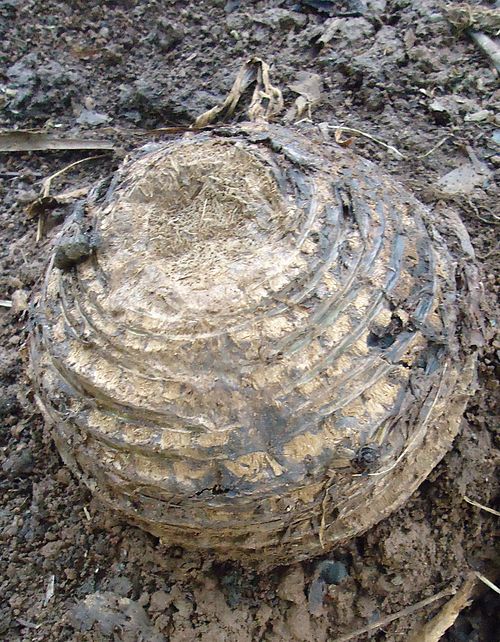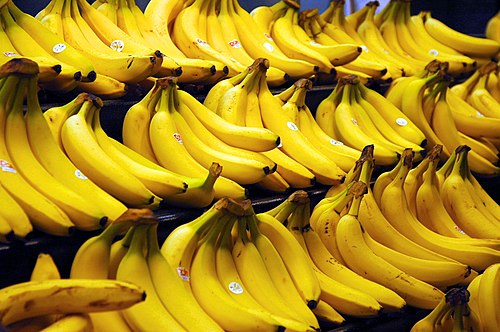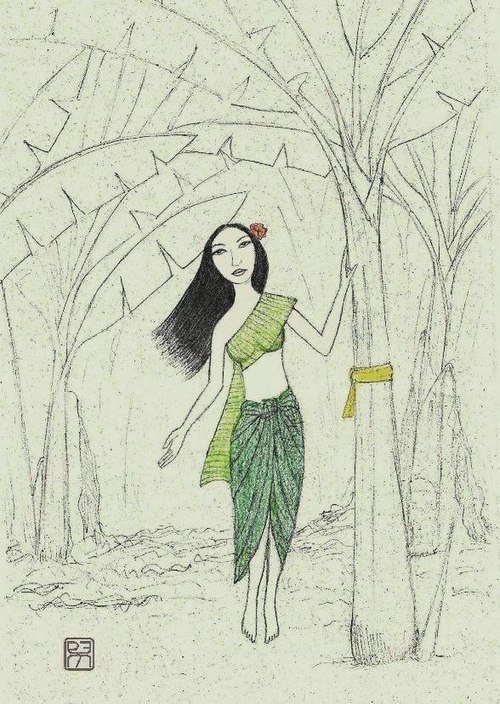Plantainnoun
A plant of the genus Plantago, with a rosette of sessile leaves about 10 cm long with a narrow part instead of a petiole, and with a spike inflorescence with the flower spacing varying widely among the species. See also psyllium.
Plantainnoun
A plant in the genus Musa, the genus that includes banana, but with lower sugar content than banana.
Plantainnoun
The fruit of the plant, usually cooked before eating and used like potatoes.
Plantainnoun
A treelike perennial herb (Musa paradisiaca) of tropical regions, bearing immense leaves and large clusters of the fruits called plantains. See Musa.
Plantainnoun
The fruit of this plant. It is long and somewhat cylindrical, slightly curved, and, when ripe, soft, fleshy, and covered with a thick but tender yellowish skin. The plantain is a staple article of food in most tropical countries, especially when cooked.
Plantainnoun
Any plant of the genus Plantago, but especially the Plantago major, a low herb with broad spreading radical leaves, and slender spikes of minute flowers. It is a native of Europe, but now found near the abode of civilized man in nearly all parts of the world.
Plantainnoun
any of numerous plants of the genus Plantago; mostly small roadside or dooryard weeds with elliptic leaves and small spikes of very small flowers; seeds of some used medicinally
Plantainnoun
a banana tree bearing hanging clusters of edible angular greenish starchy fruits; tropics and subtropics
Plantainnoun
starchy banana-like fruit; eaten (always cooked) as a staple vegetable throughout the tropics
Plantainnoun
a low-growing plant that typically has a rosette of leaves and a slender green flower spike, widely growing as a weed in lawns.
Plantainnoun
a banana containing high levels of starch and little sugar, which is harvested green and widely used as a cooked vegetable in the tropics.
Plantainnoun
the plant which bears the plantain.
Banananoun
An elongated curved tropical fruit that grows in bunches and has a creamy flesh and a smooth skin.
Banananoun
Especially, the sweet, yellow fruit of the Cavendish banana cultivar.
Banananoun
The tropical tree-like plant which bears clusters of bananas. The plant, usually of the genus Musa but sometimes also including plants from Ensete, has large, elongated leaves and is related to the plantain.
Banananoun
(uncountable) A yellow colour, like that of a banana's skin.
Banananoun
A person of Asian descent, especially a Chinese American, who has assimilated into Western culture or married a Caucasian (from the "yellow" outside and "white" inside). Compare assimilated Hispanic or Black or Black person who is "black outside" and "white inside".
Banananoun
(nuclear physics) A banana equivalent dose.
Banananoun
(colloquial) A catamorphism (from the use of banana brackets in the notation).
Bananaadjective
Curved like a banana, especially of a ball in flight.
Banananoun
A perennial herbaceous plant of almost treelike size (Musa sapientum); also, its edible fruit. See Musa.
Banananoun
any of several tropical and subtropical treelike herbs of the genus Musa having a terminal crown of large entire leaves and usually bearing hanging clusters of elongated fruits
Banananoun
elongated crescent-shaped yellow fruit with soft sweet flesh
Banana
A banana is an elongated, edible fruit – botanically a berry – produced by several kinds of large herbaceous flowering plants in the genus Musa. In some countries, bananas used for cooking may be called , distinguishing them from dessert bananas.

































